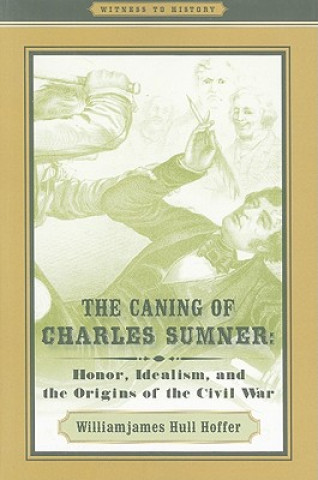
Livrare
Consilier de cumpărături





Nu se pretează? Nu contează! La noi puteți returna bunurile în 30 de zile
 Voucher cadou
orice valoare
Voucher cadou
orice valoare
Cu un voucher cadou nu veți da greș. În schimbul voucherului, destinatarul își poate alege orice din oferta noastră.
Caning of Charles Sumner
 engleză
engleză
 76 b
76 b
30 de zile pentru retur bunuri
Ar putea de asemenea, să te intereseze


A signal, violent event in the history of the United States Congress, the caning of Charles Sumner on the Senate floor embodied the complex North-South cultural divide of the mid-nineteenth century. Williamjames Hull Hoffer's vivid account of the brutal act demonstrates just how far the sections had drifted apart and explains why the coming war was so difficult to avoid. Sumner, a noted abolitionist and gifted speaker, was seated at his Senate desk on May 22, 1856, when Democratic Congressman Preston S. Brooks approached, pulled out a gutta-percha walking stick, and struck him on the head. Brooks continued to beat the stunned Sumner, forcing him to the ground and repeatedly striking him even as the cane shattered. He then pursued the bloodied, staggering Republican senator up the Senate aisle until Sumner collapsed at the feet of Congressman Edwin B. Morgan. Colleagues of the two intervened only after Brooks appeared intent on beating the unconscious Sumner severely-and, perhaps, to death. Sumner's crime? Speaking passionately about the evils of slavery, which dishonored both the South and Brooks's relative, Senator Andrew P. Butler. Celebrated in the South for the act, Brooks was fined only three hundred dollars, dying a year later of a throat infection. Sumner recovered and served out a distinguished Senate career until his death in 1873. Hoffer's narrative recounts the caning and its aftermath, explores the depths of the differences between free and slave states in 1856, and explains the workings of the Southern honor culture as opposed to Yankee idealism. Hoffer helps us understand why Brooks would take such great offense at a political speech and why he chose a cane-instead of dueling with pistols or swords-to meet his obligation under the South's prevailing code of honor. He discusses why the courts meted out a comparatively light sentence. He addresses the importance of the event in the national crisis and shows why such actions are not quite as alien to today's politics as they might at first seem.
Informații despre carte
 engleză
engleză




 Cum să cumpăr
Cum să cumpăr



















